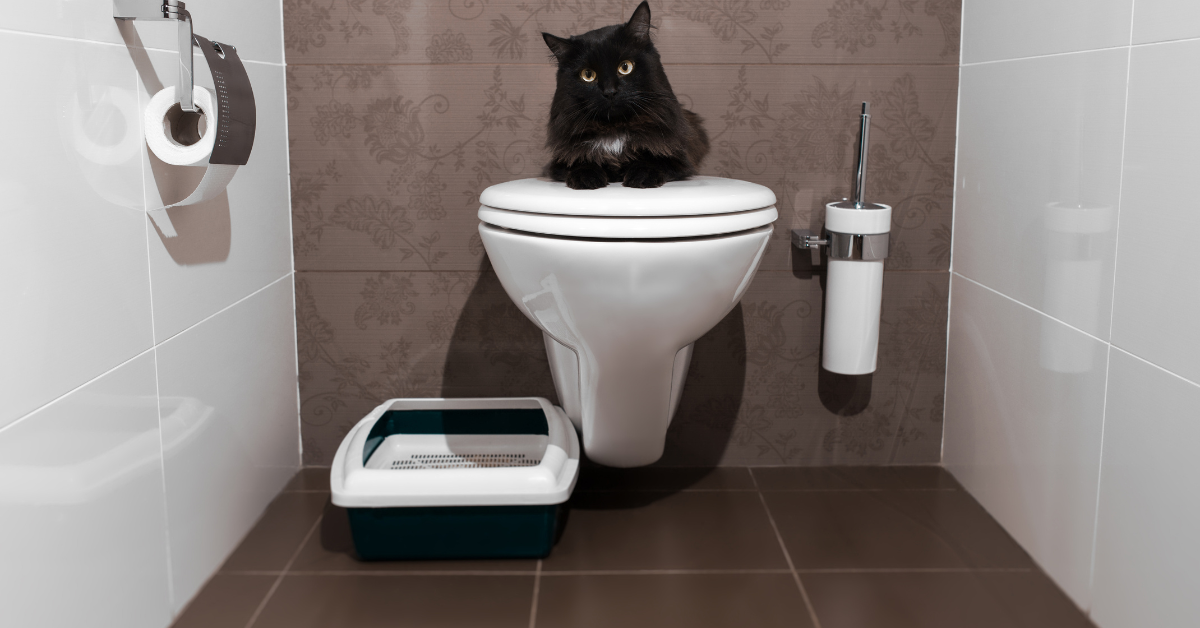We have encountered this article about How to Dispose of Cat Poop and Litter Without Plastic Bags directly below on the web and accepted it made good sense to talk about it with you on this site.

Intro
As pet cat owners, it's important to bear in mind exactly how we throw away our feline pals' waste. While it may appear convenient to purge pet cat poop down the commode, this technique can have harmful consequences for both the environment and human wellness.
Alternatives to Flushing
Luckily, there are more secure and much more accountable ways to deal with feline poop. Think about the complying with choices:
1. Scoop and Dispose in Trash
The most typical technique of getting rid of pet cat poop is to scoop it into a biodegradable bag and throw it in the garbage. Make sure to make use of a dedicated clutter inside story and get rid of the waste quickly.
2. Usage Biodegradable Litter
Go with biodegradable feline trash made from products such as corn or wheat. These trashes are environmentally friendly and can be safely taken care of in the garbage.
3. Hide in the Yard
If you have a yard, consider hiding pet cat waste in a designated location away from vegetable gardens and water resources. Be sure to dig deep enough to prevent contamination of groundwater.
4. Mount a Pet Waste Disposal System
Invest in a pet dog waste disposal system specifically developed for cat waste. These systems utilize enzymes to break down the waste, lowering odor and ecological influence.
Health and wellness Risks
Along with ecological concerns, flushing pet cat waste can also present health and wellness threats to people. Pet cat feces might include Toxoplasma gondii, a bloodsucker that can create toxoplasmosis-- a potentially severe disease, specifically for pregnant females and people with weakened immune systems.
Ecological Impact
Purging cat poop presents damaging virus and parasites right into the water supply, presenting a substantial danger to aquatic environments. These impurities can adversely impact aquatic life and concession water quality.
Conclusion
Accountable family pet ownership prolongs beyond giving food and shelter-- it also entails correct waste management. By refraining from purging cat poop down the toilet and selecting alternative disposal methods, we can reduce our environmental impact and protect human health and wellness.
Why You Should Never Flush Cat Poop Down the Toilet
A rose by any other name might smell as sweet, but not all poop is created equal. Toilets, and our sewage systems, are designed for human excrement, not animal waste. It might seem like it couldn’t hurt to toss cat feces into the loo, but it’s not a good idea to flush cat poop in the toilet.
First and foremost, assuming your cat uses a litter box, any waste is going to have litter on it. And even the smallest amount of litter can wreak havoc on plumbing.
Over time, small amounts build up, filling up your septic system. Most litter sold today is clumping; it is made from a type of clay that hardens when it gets wet. Ever tried to scrape old clumps from the bottom of a litter box? You know just how cement-hard it can get!
Now imagine just a small clump of that stuck in your pipes. A simple de-clogger like Drano isn’t going to cut it. And that means it’s going to cost you big time to fix it.
Parasitic Contamination
Believe it or not, your healthy kitty may be harboring a nasty parasite. Only cats excrete Toxoplasma in their feces. Yet it rarely causes serious health issues in the cats that are infected. Most people will be fine too if infected. Only pregnant women and people with compromised immune systems are at risk. (If you’ve ever heard how women who are expecting are excused from litter cleaning duty, Toxoplasma is why.)
But other animals may have a problem if infected with the parasite. And human water treatment systems aren’t designed to handle it. As a result, the systems don’t remove the parasite before discharging wastewater into local waterways. Fish, shellfish, and other marine life — otters in particular — are susceptible to toxoplasma. If exposed, most will end up with brain damage and many will die.
Depending on the species of fish, they may end up on someone’s fish hook and, ultimately on someone’s dinner plate. If that someone has a chronic illness, they’re at risk.
Skip the Toilet Training
We know there are folks out there who like to toilet train their cats. And we give them props, it takes a lot of work. But thanks to the toxoplasma, it’s not a good idea.

I came across that blog entry on How to Dispose of Cat Poop and Litter Without Plastic Bags while doing a lookup on the search engines. Liked our piece of writing? Please share it. Let other people check it out. Thank you for your time. Come back soon.
Schedule A Free Estimate